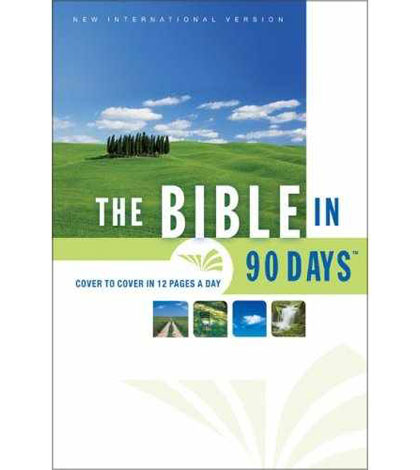Psalms –
- Pastor Dwayne recommended two books — Thomas Merton’s “Opening the Bible” and “Praying the Psalms” for people to consider reading after we finish the Bible.
Other notes and highlights mentioned by the group:
- Psalm 116:16 – “Truly I am your servant, Lord; I serve you just as my mother did…” In a couple of places in Psalms the writer refers to his mother and her influence.
- Psalm 132:17 “Here I will make a horn grow for David and set up a lamp for my anointed one.” May be an example of prophecy about Jesus.
- Psalm 91:11-12 “For he will command his angels concerning you to guard you in all your ways; they will lift you up in their hands, so that you will not strike your foot against a stone.” Passage mentioned in the New Testament when Jesus is tempted.
- Started to see things we have heard before in other contexts. Psalm 103 – sounds like the song “Bless the Lord oh My Soul.”
- In Book V, Psalm 119 – Written in the order of the Hebrew alphabet.
- “I hate double minded people, but love your law.” Psalm 119:113 – not certain of meaning. But, one of the motifs of Psalms seems to be wholeheartedness. Law stands contrary to double mindedness and the law is wholehearted.
- Psalm 139 was highlighted as one of favorites of one participant. She explained as a young person she thought God didn’t care enough to be near her. And, verse 13 is most striking: “For you created my inmost being; you knit me together in my mother’s womb”. Suggests God knew us and we are important to God. Very powerful.
- Psalm 141 – verse 1: “I call to you, Lord, come quickly to me; hear me when I call to you.” Expresses desire for God to hear our voice.
- Psalm 51 — Mentioned as a lead into David and Bathsheba on Sunday…very moving in that context in which the psalmist asks God to create in him a clean heart.
Proverbs
Background: Although the book attributes Proverbs to Solomon, later chapters suggest that he was not the only author of the book.
- One person pointed out that he was taught to read the chapter corresponding with the date of the month because there are 31 chapters.
- Interesting themes:
- Random statements about a nagging wife. Maybe it helps to remember Solomon had 700 wives.
- Wisdom – get it at any cost.
- Some proverbs seemed of an old New England Puritanical nature regarding women and adultery and how women tempt men or statements about sleeping and folding hands and ending up poor.
- Contradictions regarding women – nagging wife, adultery but also quotes like: “…do not forsake your mother’s teaching.” (Proverbs 1:8) and Wisdom herself is a woman.
- Other themes: Giving, kindness to animals (12:10), discipline children, lending, putting up security.
- Iron sharpens iron (Proverbs 27:17) – Important to sharpen ideas through debating or interacting with other people.
- Wisdom and Folly — listen to God’s words and law or trust own judgment that leads to bad things. Also political angle — listen to advisors…good to listen to other people’s opinions. Self-will — basic definition of folly.
- Proverb 24, Saying 29 – Don’t be so upset that other people have more because sometimes you do know how they actually got it — you may not want it that way.
- If you’re not a morning person, liked Proverbs 27:14 “If anyone loudly blesses their neighbor early in the morning, it will be taken as a curse.”
Ecclesiastes
Background: No author or time period is mentioned, but some passages suggest Solomon may have written this book. However, it is an open question.
- Many thought Ecclesiastes was “wonderful” – the writer is someone who looks at the reality of the everyday. People who have difficulty trusting God — it doesn’t matter just hold on. But some thought it was more depressing — life is a bad bargain and then you die.
- Many focused on Chapter 3 — A Time for Everything.
- Many enjoyed reading it. Like Zen…chasing the wind — getting riches, power, stature, wisdom in excess – it’s all meaningless, like seeking wind.
- Life is short so enjoy right now what you have. But then again, it says everything is meaningless.
- It is important to interpret scripture with scripture and here a pivotal scripture is Ecclesiastes 12:13: “Now all has been heard; here is the conclusion of the matter: Fear God and keep his commandments, for this is the duty of all mankind.” Seems the end of the matter is this…focus on this… here is the meaning. When you achieve something and you still feel empty Eccl. 12:13 is where there’s deep meaning.
Song of Songs
Background: The title in the Hebrew is “Solomon’s Song of Songs,” meaning a song by, for, or about Solomon. The title “Song of Songs” suggests the greatest of songs like when we use “King of kings” or “Lord of lords.” It appears to suggest Solomon is the author but that remains an open question.
- Some were surprised this book is in the Bible. Sounded a little “freaky” and was a “whoa” moment.
- Love song or poem — found this more appealing than some of the things we hear today about love – very poetic and very beautiful.
- Sounds like something Solomon would write given all his wives.
- About an embodied sexuality and spirituality. In some traditional views, the body is dirty on some levels. Opens discussion of the goodness of how we are created.
- One interpretation is this describes God’s love for everyone or Christ’s love for the church but it could be this interpretation came about because of the discomfort around sexuality.
- Why all imagery around fruit and animals? It’s probably stuff people at that time could relate to.
Isaiah –
Background: The author is believed to be the prophet Isaiah, however there are questions as to whether he wrote the entire book. This would have been in the time period just following King Uzziah through King Hezekiah.
- We say Isaiah 6:3 every week during communion.
- Some chapters and passages believed to be referring to the Messiah (Jesus). In fact we refer to Isaiah 11 – the Branch of Jesse often during Christmas
- The book is believed to contain prophesies not just about events that have already occurred but will occur in our future.


